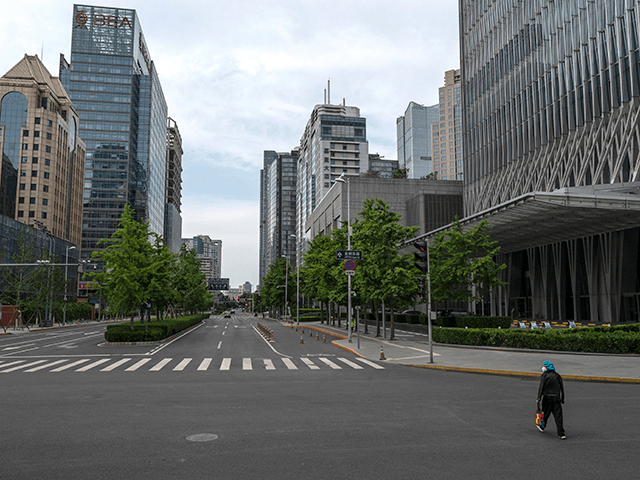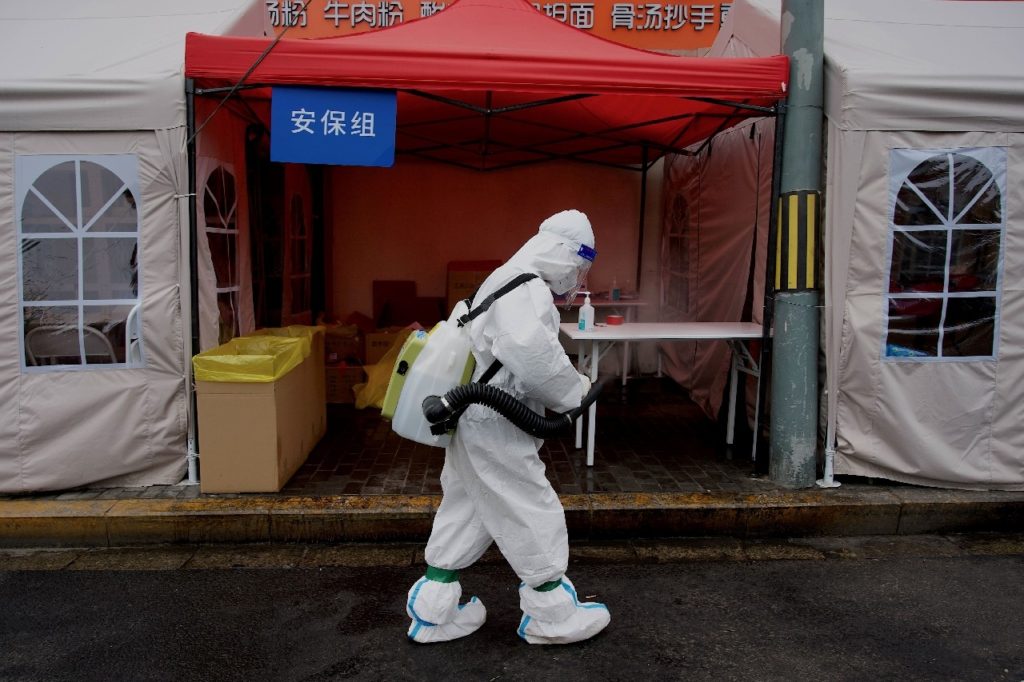China’s state-run Global Times on Thursday claimed outsiders misunderstand Beijing’s increasingly bizarre “dynamic zero-Covid” strategy, and fail to appreciate how China is somehow saving the global economy tomorrow by brutally locking down cities, shuttering factories, and snarling supply chains today.
“As China battles its worst COVID-19 [Chinese coronavirus] outbreak since 2020, its zero-COVID strategy has been repeatedly accused of undermining the global economy. It is a short-sighted viewpoint that will, ultimately, add more uncertainty to the global economic recovery,” the Chinese Communist paper pontificated.
After rambling on for a while about how “dynamic zero-Covid” is not actually the Moby Dick obsession to achieve an impossible standard of zero Covid cases it appears to be, but actually an extremely clever and highly nuanced program to “curtail the viral transmission at the lowest possible cost,” the Global Times dismissed critics as “short-sighted.”
“Some of them are just trying to smear, denigrate and undermine China. Whoever bets that China is at risk of a self-inflicted recession will suffer the consequences of their mistakes,” the editors sneered.
#GTVoice: With the dynamic zero-COVID strategy, time will prove once again that China can and will claim victory against the virus and will continue to play a major positive role for the global economy. https://t.co/C2ytU6qivk
— Global Times (@globaltimesnews) May 12, 2022
At no point in the editorial do the authors come close to explaining why the broad impression of China’s policies as a deranged political imperative that has fallen out of step with the rest of the planet might be incorrect. Instead, the point of the entire article was to harp on Western inflation as proof that China’s lockdown-shriveled economic forecasts are not that bad:
We are confident that as the epidemic is gradually brought under control, economic activities will return to normal in the rest of the year. China has set a growth target of around 5.5 percent for the Chinese economy this year. A 5.5-percent growth means China will still be one of the biggest, if not the biggest, drivers of global economic growth.
By contrast, some Western countries that have failed to curb the COVID-19 outbreak have become major trouble-makers for the global economy. In April, US consumer prices rose at an annual pace of 8.3 percent, staying at a nearly four-decade high. The US’ sky-high inflation and its drastic monetary policy to tame surging prices pose the real risk for the global economy.
If China adopts Western-style anti-epidemic measures, its economy will suffer more from inflation and a series of other problems, including unexpected ones.
Sky-high U.S. inflation has nothing to do with Americans learning to live with infectious but mild strains of the Wuhan coronavirus, and everything to do with President Joe Biden’s irresponsible spending and destructive economic policies. The Western world in general did a huge amount of damage to itself by falling for China’s claims about the curative power of lockdowns, spending fantastic amounts of money on lockdown-era welfare programs and ill-conceived “stimulus plans.”
The lockdown nightmare in Shanghai continues at press time, and other Chinese cities are teetering on the brink of the “dynamic zero-Covid” abyss.
Contrary to the Global Times prattling about short-term costs incurred for long-term games, there is growing evidence that the Shanghai lockdown inflicted permanent damage on the city and the global economy, from supply lines to financial transactions. Everyone who can get out of China is doing so, which is why the Communist tyranny is confiscating passports from its subjects and locking down its borders.
The World Health Organization (W.H.O.) — which has, to put it diplomatically, gone far out of its way to avoid criticizing China throughout the pandemic — declared China’s zero-Covid strategies “unsustainable” this week, prompting an outraged response from Beijing, accompanied by the usual swarm of Communist Party censorship gremlins deleting W.H.O. Director Tedros Adhanom Ghebreyesus’ comments.


COMMENTS
Please let us know if you're having issues with commenting.